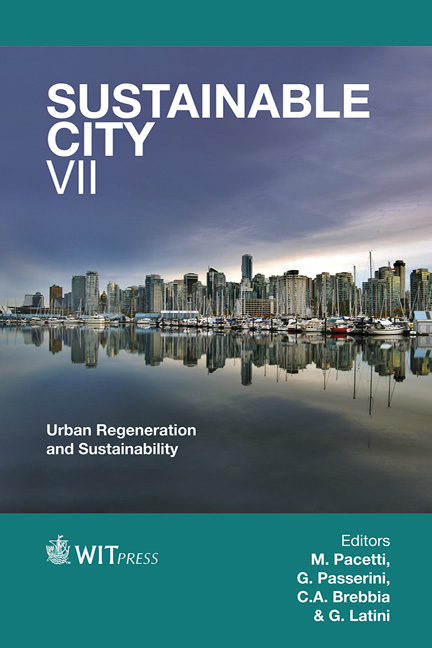Assessing The Sustenance And Evolution Of Social And Cultural Contexts With Sustainable Urban Development
Price
Free (open access)
Transaction
Volume
155
Pages
12
Page Range
539 - 550
Published
2012
Size
1,072 kb
Paper DOI
10.2495/SC120451
Copyright
WIT Press
Author(s)
H. S. Choi & K. H. Ahn
Abstract
A sustainable urban vision needs to reflect the distinctive qualities, characteristics and identities of each individual city. This vision is also an expression of the integrated values and perspectives the inhabitants of each city have for what should be sustained. This paper provides a spatial assessment framework for discussing a new model, with suggestions for sustainable design alternatives in relation to urban design principles and practices, focusing in particular on development within the Multifunctional Administrative City in South Korea. Keywords: social and cultural sustainability, local identity, contemporary new town development. 1 Introduction Sustainability is a key issue in urban transformation and development in the 21st century. The Climate Conference in Copenhagen in 2009, for instance, included government-level debate on how to achieve responsible and sustainable urban growth whilst preventing global warming and climate change. Sustainability means more than the protection of the environment; it also requires a long-term vision for catalyzing positive change leading to sustainable social and cultural contexts in relation to the built environment (Newman and Jennings [1]). This vision needs to reflect the distinctive nature and characteristics and identities of each city. The vision should also express the integrated values and identity of the people for their cities to become more sustainable. Newman and Jennings [1] noted that a vision based on sustainability will help align and motivate communities,
Keywords
social and cultural sustainability, local identity, contemporary new town development.





